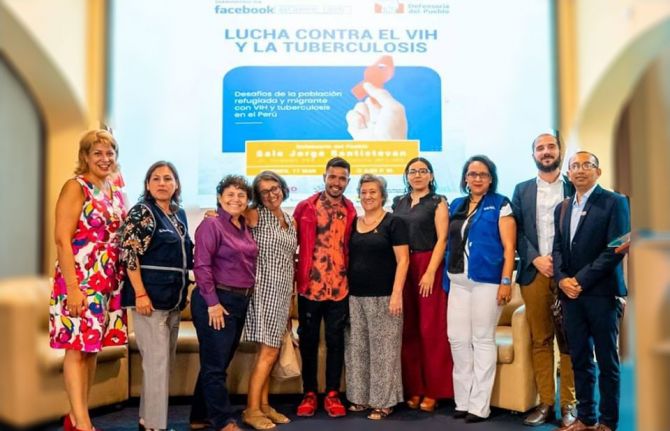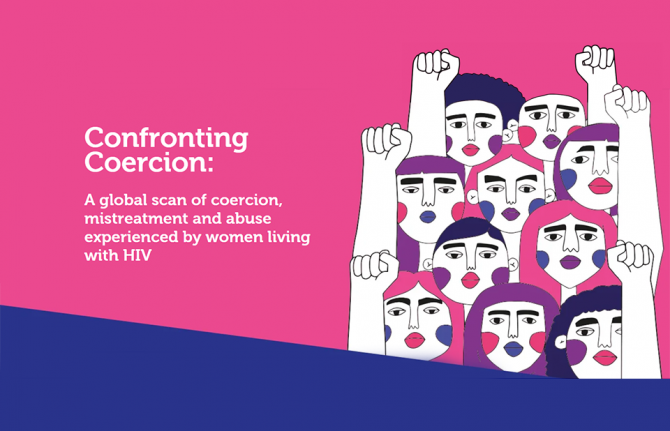
Feature Story
High Level meeting side-event calls for full inclusion and recognition of key populations at risk of HIV in all responses to HIV
10 June 2011
10 June 2011 10 June 2011
Credit: UNIC
Stigma and discrimination and punitive legal environments continue to block people around the world from accessing the HIV services they need. Thirty years into the epidemic they still represent a major barrier to universal access to HIV prevention, treatment, care and support. To find ways to overcome these obstacles, a community dialogue event provided members of key populations at higher risk of HIV a critical and groundbreaking platform at the UN General Assembly High Level Meeting on AIDS to share their expertise and experience. The panellists—who represented leaders among men who have sex with men, people who inject drugs, transgendered people and sex workers—reinforced the call for full recognition and protection of their human rights in all national HIV responses.
Ten years since the 2001 Declaration of Commitment, in which Member States committed to eliminate discrimination against people living with HIV and vulnerable groups, many countries still lack anti-discrimination laws and use punitive approaches to key populations that create barriers between them and HIV services. Countries cite stigma as the single greatest impediment to accelerating progress in the HIV response; however, stigma reduction programmes are neither adequately resourced, taken to scale or targeted to benefit key populations.
The event, hosted by the UK and South Africa Governments and partnered by the International HIV/AIDS Alliance (IAA) and International Federation of the Red Cross (IFRC), was an opportunity for leaders from key populations at risk of HIV to describe what is needed and what is working in the criminalized and discriminatory environments in which they live their everyday lives. Many communities have taken bold steps to overcome human rights abuses and lack of access to HIV services—organizing to demand their rights, providing services through their peers, working with local police and government leaders for recognition and protection. What is needed now is greater support and political, legal and social space for these groups to continue to find and implement such solutions that work for them.
Rather than simply describing the barriers they face in accessing services, they highlighted examples where their key affected population has achieved greater access and offered concrete solutions on how we can address these obstacles in a practical way.
Full respect for the human rights of key populations and evidence-based interventions targeted to the realities they face, as well as support for their leadership and capacity to find solutions for their communities, are all critical to advance the AIDS response
Jan Beagle, UNAIDS Deputy Executive Director, Management and External Relations
United Kingdom Minister for International Development, Stephen O’Brien, in his introductory remarks stressed that for effective AIDS responses, it is essential to work with key populations without prejudice and address restrictive laws that are hampering access to services for key populations.
Alexei Kurmanayevsky from Russia shared his experience as a person who injects drugs and is living with HIV. The panel also included Penninah Mwangi who is the Director of Bar Hostess Association, Nairobi, Kenya—one of the longest standing sex worker-led organizations in Africa. Marcela Romero from Argentina spoke as a transgender person. Othman Mellouk from Morocco spoke about the barriers to delivering effective HIV services to men who have sex with men.
The event was chaired by Michaela Clayton, Executive Director of ARASA and Co-chair of UNAIDS Reference Group on HIV and Human Rights, who also invited interventions from the floor. Jan Beagle, UNAIDS Deputy Executive Director, Management and External Relations, stressed the need for a rights-based approach when addressing HIV. "Full respect for the human rights of key populations and evidence-based interventions targeted to the realities they face, as well as support for their leadership and capacity to find solutions for their communities, are all critical to advance the AIDS response," Ms Beagle said.
The key recommendations from each speaker and the floor discussion were collated into a list of recommended next steps to be presented to the Chairs of the High Level Meeting on AIDS.
UN General Assembly High Level Meeting on AIDS
Thirty years into the AIDS epidemic, and 10 years since the landmark UN General Assembly Special Session on HIV/AIDS, the world has come together to review progress and chart the future course of the global AIDS response at the 2011 UN General Assembly High Level Meeting on AIDS from 8–10 June 2011 in New York. Member States are expected to adopt a new Declaration that will reaffirm current commitments and commit to actions to guide and sustain the global AIDS response.



